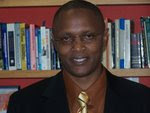WWII powers neglected third world countries
Issue date: 9/13/05 Section: VIEWS
By Ndirangu Wachanga
Universal devastation caused by the second World War will continue to haunt those who still possess human hearts in their chests.
Destruction of infrastructure during this period may be overwhelming, but it is the regrettable denigration of the sanctity of human life during this war that will forever unsettle humanity. After this war, most countries that had colonies elsewhere came to a bitter realization that they could not eternally oppress other countries.
It is not surprising that fierce peasant uprisings in countries such as Algeria and Kenya led to independence in most countries. In fact, in 1960, British Prime Minister Harold Macmillan referred to what was happening in Africa as a new "wind of change." And it was more than just a passing wind. For just one year after Macmillan's Cape Town pronouncement, 17 African states had wrestled power from the colonialists.
These young states, confronted by monstrous challenges, were unswerving in internal nation building and at the same time liberating other countries sweltering under colonial powers.
Globally, we had anti-war campaigns being launched and civil rights movements were hitting the streets. Student rebellion and nationalist movements were making an impact that could not be ignored. Popular culture was emerging and universities, initially considered ivory towers and bastion of objective inquiry, became venues of socio-cultural and political strategies.
Emerging nations, both in Africa and Asia, had a grotesque hurdle placed on their way to development by their former masters, and the cold war was sizzling. Having freed themselves from the European capitalists, these young Afro-Asian countries radically resisted the temptation of joining the communist European hegemony. This led to a "third force" in global socio-cultural politics. French demographer Alfred Sauvy, who first used the term "third world" in an article in the newspaper L'Observateur in 1952, must have correctly read the signs of time.
The third force was however faced with enormous challenges: competition and intimidation from stronger foreign states and especially former masters, a cutthroat global market and rigidity of an internal single party political system. Inability of the third force to have an impact in the world market led to introduction of another form of colonial oppression in form of global corporate and multinationals.
What emerges from this power dynamic is a socio-economic Manichean paradigm with two sets of global societies: the core and the periphery. Major western capitals occupy an almost sacrosanct place in the core of this paradigm. The Third World seems condemned in the periphery.
Ndirangu Wachanga is a journalism graduate student from Nairobi, Kenya. He can be reached at nimzeewachanga29@yahoo.com

No comments:
Post a Comment